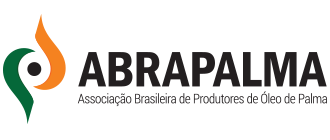The Brazilian legislation that defines the concept of family agriculturist is supported by the Brazilian constitution and by the 11.326/2006 law. A family agriculturist develops economic activities in rural areas and meets basic requirements, such as not possessing rural property bigger than 4 fiscal modules; this being a definition that changes according to the region in which it is located, since the fiscal module varies from 5 to 100 hectares according to the municipality.

Family agriculture utilizes, above all, family labor in economic activities, and the biggest part of the family income comes from the farming activities that are developed in their rural facilities.
In the year of 2006, IBGE carried out the Brazilian Agricultural Census. It was found that family agriculture has great force and importance for the production of food in the country. According to official data, approximately 85% of agricultural facilities come from family agriculture. There are around 4,26 million of agricultural facilities that fit in the law’s definition.
The main program that encourages family farming is the National Program of Strengthening of the Family Agriculture – Pronaf, which finances projects for the small farmer, with low interest rates.
Through Pronaf, the Ministry of Agrarian Development – MDA enjoys a specific line of credit for palm, with conditions and distinguished interest. This provides incentive and support for the small farmer.
Pronaf Eco Dendê transfers the resources to the family agriculturists through the Bank of Brazil and Bank of the Amazon – Basa, which sign, together with Abrapalma and other partnerts, the Socio-environmental Protocol of Palm.
Family agriculture and palm
In the whole world, the plantation of oil palm involves approximately 5 million families of agriculturists in 44 countries in Central and South America, Africa, Asia and Oceania, generating a reduction of the rural exodus, economical alternatives, new local productive arranges and an increase of income in the countryside.
In the state of Pará, where the biggest part of Brazilian production of palm oil concentrates, 1070 families of agriculturists are incorporated into the productive process, between small and medium producers. These families are distributed in 27.526 hectares.
